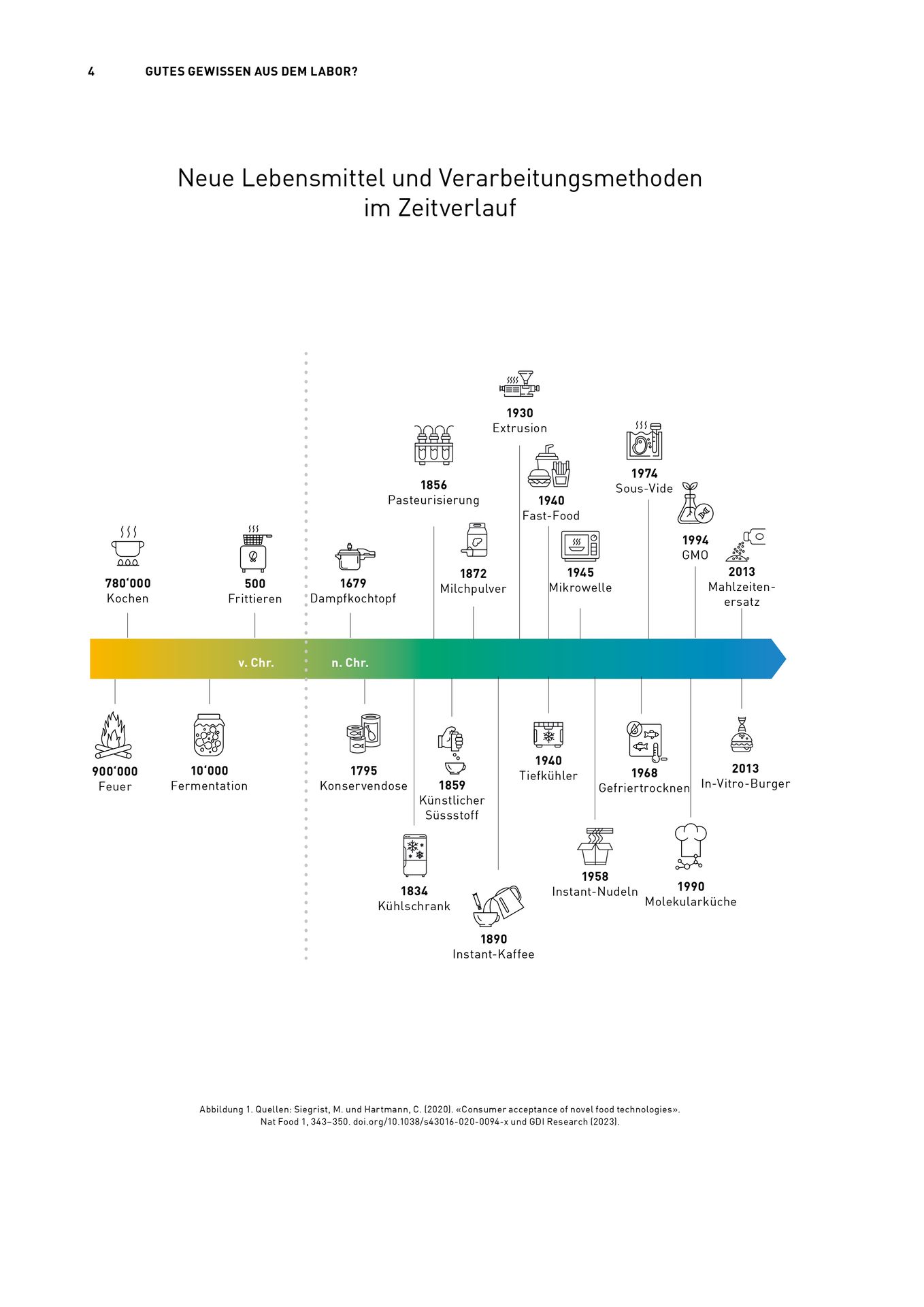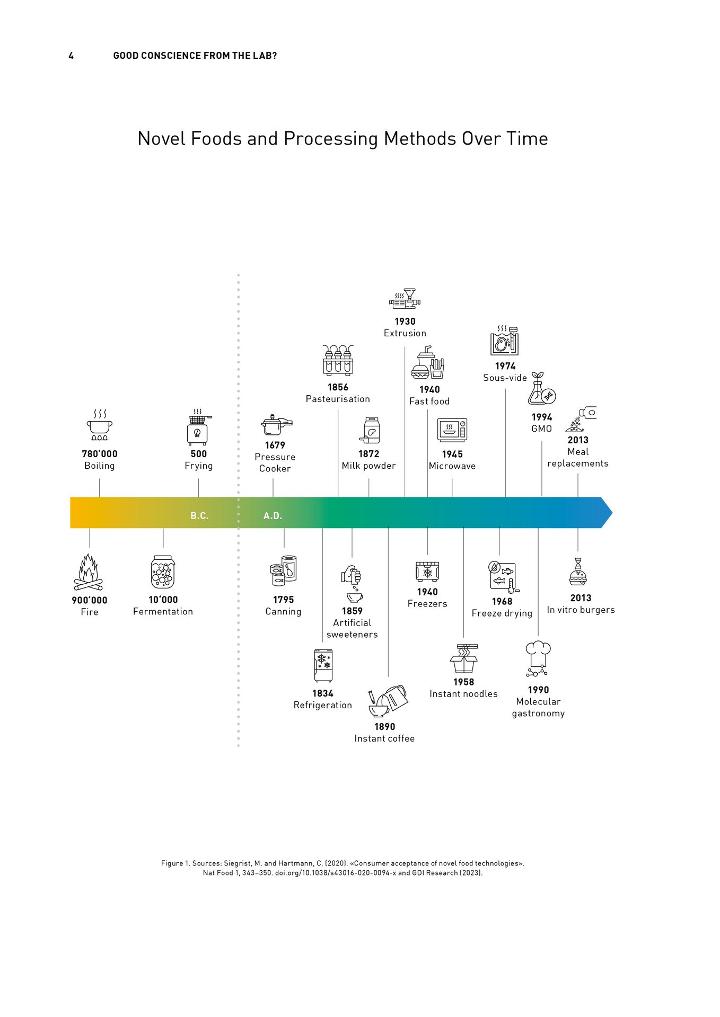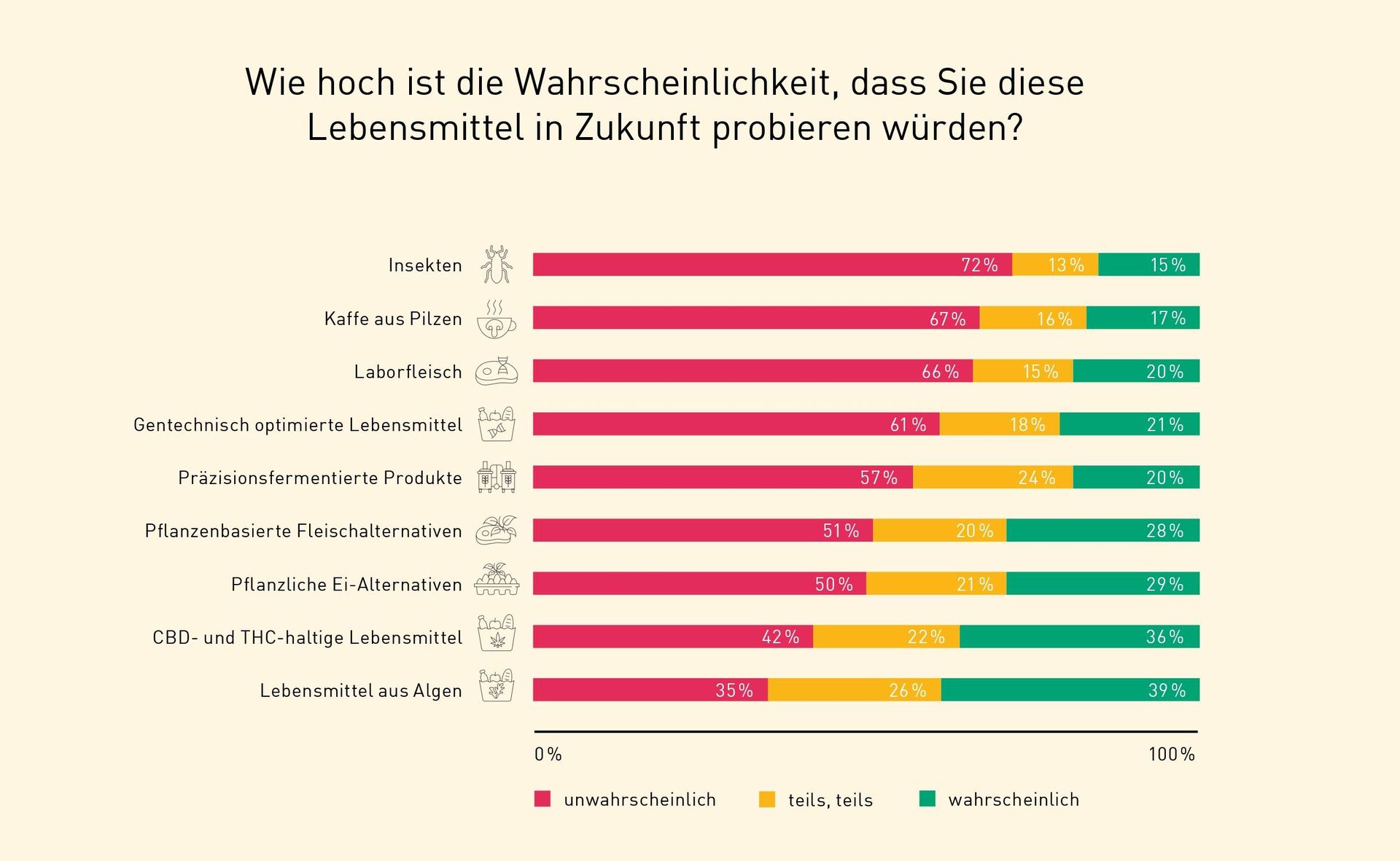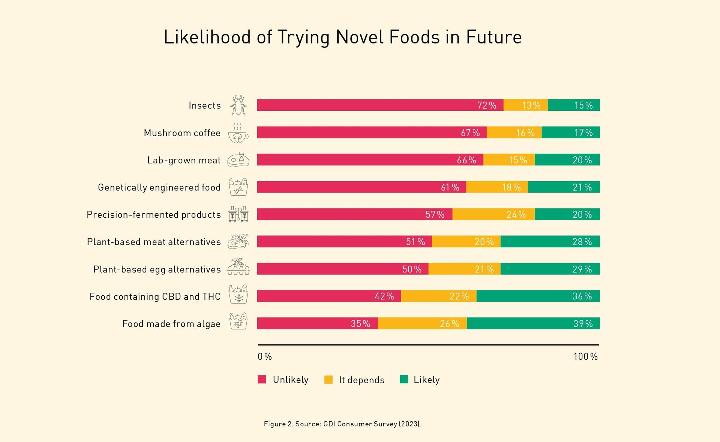The following text is based on an extract from the GDI trend paper "Good Conscience From the Lab? The State of Acceptance for Cultivated Meat", which you can download free of charge.
Food and nutrition are marked by tensions between tradition and innovation. The adage «better the devil you know than the devil you don’t» may well describe some people’s scepticism towards novel foods. But curiosity about new experiences is part of being human too. We have been discovering new foods and new ways of preparing them for thousands of years. These range from basic techniques like baking, boiling, fermenting and frying to modern innovations such as canning, pasteurisation, extrusion, molecular gastronomy, genetic modification and cellular agriculture. Our culinary evolution has been shaped by the quest for new taste experiences, increased efficiency and sustainable solutions.


A look at the data shows how important this openness to lab-grown meat is. By 2050, there will be around 10 billion people on Earth. Covering their protein needs predominantly from traditional animal products will be nearly impossible and, in any case, extremely inefficient. It is inevitable that new foodstuffs will need to be developed. Labgrown meat is one such example of a novel food. It is cultivated from stem cells in a bioreactor and has many advantages, namely that factory farming and the use of antibiotics are all but eliminated, less space and water is needed for production, no rainforests need to be cut down to cultivate animal feed and the combination of nutrients in the meat can be adapted to specific target groups.
Acceptance of novel foods in Switzerland
What does Switzerland make of novel foods? To find this out,
the Gottlieb Duttweiler Institute carried out a survey of the
Swiss population2
on their views on nine novel foods. The respondents were asked: how likely are you to
try these foods in future?


The results of the survey were clear. The Swiss are sceptical towards innovations in the food industry. Using insects as food is met with particular criticism. Only 15 per cent of respondents think it is likely that they would ever even try eating insects. A mere 17 per cent and 20 per cent respectively want to try coffee alternatives made of mushrooms or cultured meat. Genetically modified and precision-fermented products ranked somewhere in the middle. Respondents are somewhat more open to plant-based egg and meat alternatives (29 per cent and 28 per cent) and cannabis products containing CBD or THC (36 per cent). Swiss people are most open to trying algae. 39 per cent are eager to tuck in, while 26 per cent are still undecided.
The data seems to reveal a pattern: foodstuffs with a heavily technological component – such as lab-grown meat and genetically modified or precision-fermented products – tend to be met with greater scepticism, while products perceived to be more natural such as algae and alternative proteins derived from plants tend to find greater acceptance. Insects are an outlier in this regard. They do not require complex technological processes to be eaten as food and their consumption has been commonplace is other cultures for thousands of years. Nonetheless, there are great cultural barriers against doing this in Europe. The thought of eating insects triggers feelings of discomfort or revulsion in a large number of consumers.
Learn more at the 4th International Food Innovation Conference, which takes place at the Gottlieb Duttweiler Institute on 19 June 2024. We will gather thought leaders, industry and nutrition experts at the GDI under the theme "Culture Clash: When Food Innovation Meets Tradition". We explain which cultural hurdles need to be overcome for food innovations during production, preparation and consumption. We'll also identify cultural opportunities. For example, when established habits and rituals enable more sustainable enjoyment.